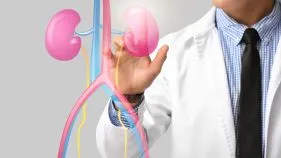
Kidney Stones: Causes, Symptoms, Prevention & Treatment You Shouldn’t Ignore
Kidney stones are one of the most common and painful urinary tract disorders affecting millions of people globally. If you’ve ever had one, you know the agony they can cause. These hard, pebble-like deposits form in the kidneys and can range from a grain of sand to the size of a golf ball.
In this blog post, we’ll cover the causes, symptoms, prevention tips, and treatment options for kidney stones—and how expert care at Prabhakar Bhurke Clinic can help you manage and prevent them.
What Are Kidney Stones?
Kidney stones are solid deposits made of minerals and salts that form inside the kidneys. They develop when urine becomes concentrated, allowing these substances to crystallize and stick together.
There are different types of kidney stones:
Calcium oxalate stones – Most common
Uric acid stones
Struvite stones – Often linked to infections
Cystine stones – Rare, often genetic
What Causes Kidney Stones?
Kidney stones can form due to various factors, including:
Dehydration – Not drinking enough water
Diet – High salt, sugar, or protein intake
Family history – Genetics play a role
Obesity – Increases stone-forming risk
Medical conditions – Hyperparathyroidism, urinary tract infections, gout
Certain medications or supplements – Calcium-based antacids, vitamin D, etc.
Common Symptoms of Kidney Stones
You may not notice small kidney stones, but larger ones can cause intense symptoms, including:
Severe pain in the side, back, or lower abdomen
Pain during urination
Pink, red, or brown urine (blood in urine)
Nausea and vomiting
Frequent urge to urinate
Cloudy or foul-smelling urine
Fever and chills (if infection is present)
Pain from kidney stones can be so intense that it’s often compared to childbirth. Don’t ignore these signs—early detection can prevent complications.
How Are Kidney Stones Diagnosed?
Diagnosis typically includes:
Urine analysis
Blood tests
Imaging tests (Ultrasound, CT scan, or X-ray)
Stone analysis (if passed naturally or removed)
Treatment Options for Kidney Stones
Treatment depends on the size, type, and location of the stone:
1. Small Stones
Often pass naturally with:
Increased fluid intake
Pain relievers
Alpha-blockers (to relax ureters)
2. Large or Painful Stones
May require:
Extracorporeal Shock Wave Lithotripsy (ESWL) – Breaks stones with sound waves
Ureteroscopy – Removes stones via a thin scope
Percutaneous Nephrolithotomy – Surgical removal for large stones
Open surgery – Rare, only for very large or complex stones
Can Kidney Stones Be Prevented?
Yes, in many cases. Here are key prevention tips:
Drink plenty of water (2.5–3 liters/day)
Limit salt and animal protein intake
Eat more fruits and vegetables
Reduce oxalate-rich foods (spinach, nuts, chocolate)
Monitor calcium intake (don’t over-supplement)
Stay physically active
Kidney Stone Expertise at Prabhakar Bhurke Clinic, Mumbai
At Prabhakar Bhurke Nephrology, Urology & Gynaecology Fertility Clinic, our team of urology and nephrology specialists provides expert care for kidney stones.
Dr. Sandip Prabhakar Bhurke (Kidney Specialist) and Dr. Hitesh Jain (Urologist and Uro Surgeon) offer:
Complete diagnostic evaluations
Customized treatment plans
Advanced stone removal techniques
Home and video consultations
State-of-the-art facilities in Andheri West (Lokhandwala) and Borivali West, Mumbai
Don’t Let Kidney Stones Slow You Down
Kidney stones are painful—but preventable and treatable. If you’re experiencing symptoms or have a history of kidney stones, consult with our experts today for a personalized treatment plan.
